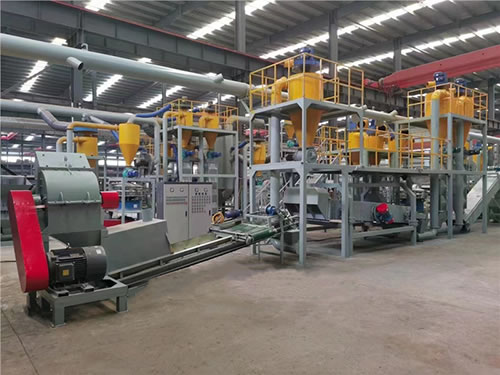Service Oriented Henan Brand Lithium Battery Crushing and Recycling Equipment Solidifies the Foundation of Maldives 1865032650 Cylindrical Waste Battery Recycling Industry
### Demand for Industrial Products in Maldives
The Maldives, a picturesque island nation in the Indian Ocean, has a unique industrial landscape shaped by its geographical and economic conditions.
**Key Points:**
- **Limited Industrial Base:** The Maldives relies heavily on imports for most of its industrial products due to its small land area and limited natural resources.
- **Tourism Industry:** A significant portion of the economy is driven by tourism, which indirectly drives demand for certain products like construction materials, food supplies, and luxury goods.
- **Fishing Industry:** This sector requires various industrial products such as fishing equipment, boats, and processing facilities.
- **Renewable Energy:** With increasing environmental awareness, there is growing demand for renewable energy solutions like solar panels and wind turbines.
- **Water Desalination:** Given the scarcity of freshwater, advanced desalination technologies and equipment are in high demand.
- **Construction Materials:** Due to ongoing infrastructure development and real estate projects, there is a steady need for construction materials including cement, steel, and machinery.
In summary, while the Maldives has specific industrial product needs driven by its economic activities, it heavily depends on imports to fulfill these requirements.

The recycling and reuse of 18650/32650 cylindrical waste batteries may lead to several environmental issues. Firstly, during the dismantling and processing stage, if not properly handled, toxic substances like heavy metals (including lead, mercury, cadmium) contained in the batteries may be released into the air, water, and soil. This can cause serious pollution. For example, mercury can damage the nervous system, while lead can affect the blood and brain. Secondly, improper disposal methods such as open burning may release harmful gases, contributing to air pollution and global warming. Moreover, the acidic or alkaline electrolytes in the batteries might leak out and contaminate the surrounding environment, affecting the growth of plants and animals. In addition, if the recycling process is not strictly regulated, there is a risk of incomplete separation of valuable materials from the waste, leading to resource wastage and further environmental pressure.

# Innovation in Lithium Battery Recycling Equipment: The New Trend of Automation and Intelligence
With the rapid development of new energy technologies, lithium batteries are widely used. The recycling of spent lithium batteries has become a crucial issue. In recent years, technological innovations in lithium battery recycling equipment have emerged in an endless stream, and automation and intelligence have become the new trends.
Automated lithium battery recycling equipment can significantly improve recycling efficiency and reduce labor costs. Through advanced mechanical design and precise control systems, the equipment can automatically complete processes such as dismantling, sorting, and material separation, ensuring high-precision operations and reducing human errors. For example, automated dismantling machines can quickly and accurately separate the cathode, anode, and separator of the battery, improving the speed and quality of recycling.
Intelligent technology is also infiltrating lithium battery recycling equipment. By introducing artificial intelligence algorithms and sensors, the equipment can monitor and adjust operating parameters in real time. Intelligent monitoring systems can track the status of the equipment, predict potential failures, and promptly alert operators for maintenance. Moreover, intelligent sorting systems can accurately identify different components and materials of the battery based on their physical and chemical properties, further improving the purity and value of recycled materials.
In conclusion, the integration of automation and intelligence in lithium battery recycling equipment not only enhances recycling efficiency and quality but also promotes the sustainable development of the new energy industry. In the future, with continuous technological progress, lithium battery recycling equipment will become more advanced, providing strong support for the efficient utilization of resources and environmental protection.
Overall enhancing the reuse of 18650/32650 cylindrical waste batteries in the Maldives is an important task that needs to be achieved through optimizing the process flow adopting advanced equipment and technology and strict link control among other means At the same time improving the technical content of lithium battery crushing and recycling equipment is also a key link in the reuse of 18650/32650 cylindrical waste batteries Only by solving these problems can we truly improve the effectiveness of reusing 18650/32650 cylindrical waste batteries in the Maldives and promote industrial development To our clients for the reuse of 18650/32650 cylindrical waste batteries in the Maldives thank you for the sincere cooperation of all new and old customers who recycle and reuse 18650/32650 cylindrical waste batteries We sincerely wish you all the best in your work